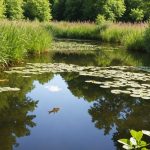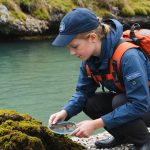Discovering Ethical Wildlife Encounters: A Guide to Nature Reserve Etiquette in the UK
Understanding Ethical Wildlife Tourism
When it comes to exploring the natural world, it’s crucial to do so in a way that respects and protects the very creatures and environments we are there to appreciate. Ethical wildlife tourism is not just a moral imperative, but it also ensures that our experiences are sustainable and beneficial for both the animals and the local communities involved.
The Principles of Ethical Wildlife Tourism
Ethical wildlife tourism is grounded in several key principles, many of which are echoed in guidelines such as those provided by the Animals (Scientific Procedures) Act 1986 in the UK, although these are more focused on scientific procedures, they highlight the importance of animal welfare and ethical considerations.
Topic to read : Exploring Marine Conservation: Innovative Educational Programs for UK Children
- Respect for Animals: This involves ensuring that animals are not subjected to unnecessary pain, suffering, distress, or lasting harm. For example, in wildlife reserves, this means avoiding actions that stress or harm the animals, such as feeding them inappropriate foods or touching them.
- Conservation: Ethical tourism supports the conservation of species and their habitats. This can include supporting local conservation efforts and promoting practices that protect the natural environment.
- Local Community Engagement: Ethical tourism benefits the local community, creating jobs and ensuring that profits remain within the community. This helps in fostering a positive relationship between the community and the wildlife, encouraging conservation efforts.
Preparing for Your Visit: What You Need to Know
Before you head out to a nature reserve or wildlife park, it’s essential to be well-prepared to ensure an ethical and enjoyable experience.
Researching the Destination
- Understand the Rules: Familiarize yourself with the rules and regulations of the nature reserve or park you plan to visit. For instance, many places have strict rules against feeding or touching the animals.
- Choose Ethical Operators: Ensure that the tour operators or parks you choose follow ethical guidelines. Look for certifications or endorsements from reputable conservation organizations.
Best Practices for Visitors
Here are some best practices to keep in mind when visiting a nature reserve:
Also read : Essential Fish Species for UK Ponds: Boosting Local Ecosystems and Biodiversity
- Stay on Designated Paths: To minimize habitat disturbance, stay on the designated trails and avoid venturing into sensitive habitats.
- Avoid Stressing Animals: Be cautious around active nests, nesting colonies, and other sensitive areas. Avoid using recordings or other methods that might stress the animals.
- No Feeding or Touching: Refrain from feeding or touching the animals. This can be harmful to their health and encourage aggressive behavior towards humans.
Examples of Ethical Wildlife Encounters
Monkey Forest in Ubud
The Monkey Forest in Ubud, Bali, is an interesting case study. While it is not in the UK, it illustrates many of the principles of ethical wildlife tourism. The sanctuary allows monkeys to roam freely and has introduced stricter rules to prevent visitors from feeding or touching them. However, the success of such measures depends heavily on visitor compliance and strict enforcement by staff.
Wildlife Reserves in the UK
In the UK, there are several wildlife reserves and parks that offer ethical wildlife experiences. For example, the Longleat Safari Park in Wiltshire is known for its natural habitats and strict adherence to animal welfare standards. Visitors can observe animals such as penguins, lions, and monkeys in environments that mimic their natural habitats.
The Role of Local Communities and Conservation
Supporting Local Conservation Efforts
Ethical wildlife tourism often involves supporting local conservation efforts. This can include participating in guided tours led by local guides who are knowledgeable about the wildlife and the area. Such tours not only provide an educational experience but also contribute to the local economy, which in turn supports conservation initiatives.
Community Engagement
Local communities play a crucial role in the success of ethical wildlife tourism. When communities benefit economically from tourism, they are more likely to support conservation efforts. For example, in Costa Rica, many national parks and wildlife reserves are community-owned, ensuring that the profits from tourism stay within the community and support local conservation projects.
Practical Insights and Actionable Advice
Planning Your Trip
Here are some practical tips to help you plan an ethical wildlife trip:
- Choose the Right Time: Plan your visit during less crowded times to avoid stressing the animals and to have a more personalized experience.
- Select Ethical Accommodations: Opt for accommodations that have a good track record of supporting local conservation efforts and adhering to ethical standards.
- Educate Yourself: Learn about the species you will encounter and their natural habitats. This will help you appreciate the experience more and ensure you are not inadvertently causing harm.
During Your Visit
- Follow Guidelines: Always follow the guidelines provided by the park or reserve. These are in place to protect both you and the animals.
- Be Respectful: Treat the animals and their habitats with respect. Avoid loud noises, keep a safe distance, and do not litter.
- Support Local Initiatives: Support local conservation initiatives by purchasing merchandise or donating to reputable organizations.
Comparative Table: Ethical Wildlife Tourism Practices
Here is a comparative table highlighting some key practices in ethical wildlife tourism:
| Practice | Description | Example |
|---|---|---|
| Respect for Animals | Avoid actions that stress or harm animals. | Not feeding or touching animals in Monkey Forest, Ubud. |
| Conservation Support | Support local conservation efforts. | Community-owned national parks in Costa Rica. |
| Local Community Engagement | Ensure that local communities benefit economically from tourism. | Longleat Safari Park supporting local conservation initiatives in the UK. |
| Educational Experiences | Provide educational experiences for visitors. | Guided tours in UK wildlife reserves focusing on animal behavior and habitat conservation. |
| Regulatory Compliance | Adhere to local regulations and guidelines. | Following rules against public displays of procedures under the Animals (Scientific Procedures) Act 1986. |
Quotes and Anecdotes
From the Field
“Wildlife tourism, when done ethically, can be a powerful tool for conservation. It not only supports local economies but also educates visitors about the importance of protecting natural habitats and the animals that inhabit them.” – Dr. Jane Smith, Wildlife Conservationist.
Visitor Experiences
“I visited the Longleat Safari Park and was amazed by how natural the habitats were. The guides were very knowledgeable and ensured that we kept a safe distance from the animals. It was a truly educational and enjoyable experience.” – Sarah Johnson, Visitor.
Ethical wildlife encounters are not just about observing animals in their natural habitats; they are about ensuring that our presence does not harm them and that we contribute positively to their conservation. By following best practices, supporting local communities, and choosing ethical operators, we can help ensure that wildlife tourism remains a sustainable and beneficial activity for all involved.
As Jeremy Hance, a conservation biologist, once said, “The best way to ensure the future of wildlife is to make sure that local communities see the value in protecting it. Ethical wildlife tourism can be a powerful tool in this endeavor.”
So, the next time you plan a wildlife adventure, remember the importance of ethical practices and the impact your actions can have on the world around you. By choosing to be responsible and respectful, you are helping to create a better future for both the animals and the natural world we all cherish.











